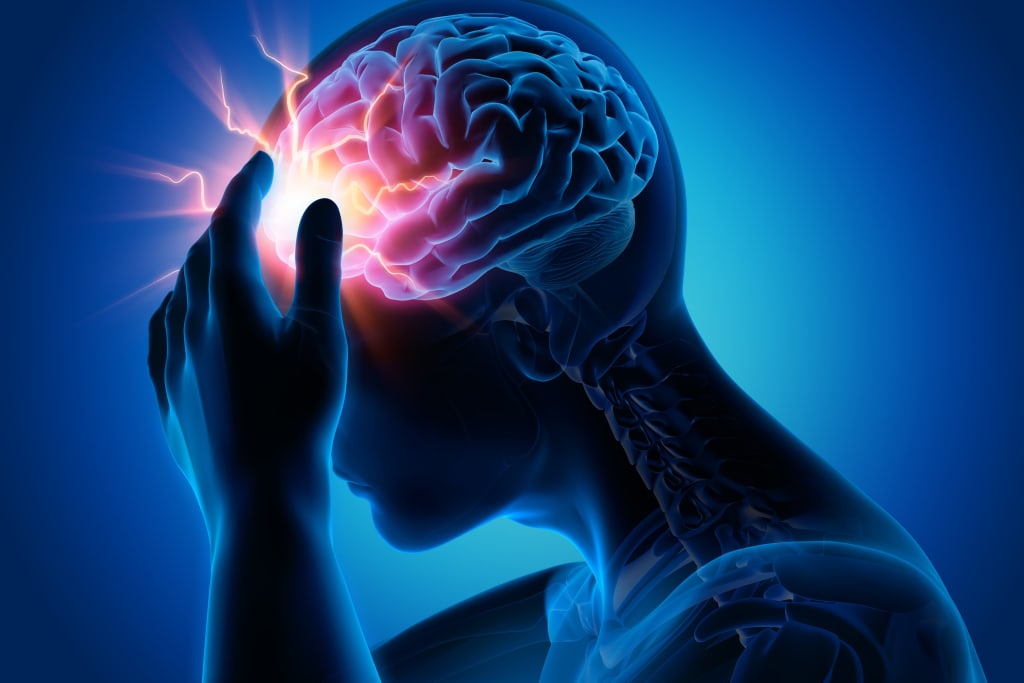9 Habits that harm your brain- Wish I'd known earlier
The Essentials of a Flourishing Brain for Cognitive Well-being

A healthy brain is one that functions well both structurally and cognitively, enabling effective thinking, learning, and emotional regulation. It is supported by positive lifestyle choices, including sufficient sleep, balanced nutrition, and regular exercise. Maintaining a healthy brain is crucial for overall well-being and cognitive longevity.
1. Lack of Sleep:
Insufficient or poor-quality sleep is associated with detrimental effects on cognitive function. Sleep plays a critical role in memory consolidation, learning, and overall cognitive performance. During the various sleep stages, the brain undergoes processes essential for maintaining optimal neurological function. Sleep deprivation can lead to impaired attention, memory deficits, and a decrease in the ability to make decisions. Chronic sleep deprivation has also been linked to an increased risk of neurodegenerative diseases.
2. Skipping Breakfast:
Breakfast is considered the most important meal of the day, providing essential nutrients that fuel the brain. Skipping breakfast deprives the brain of necessary energy sources, such as glucose, which is crucial for cognitive function. Studies suggest that individuals who regularly skip breakfast may experience difficulties in concentration, memory, and problem-solving skills. A balanced breakfast contributes to improved mood, attention, and overall cognitive performance throughout the day.
3. High Sugar Consumption:
Diets high in added sugars have been implicated in cognitive decline and an increased risk of neurodegenerative diseases. Excessive sugar intake can lead to inflammation and insulin resistance, both of which can negatively impact brain health. High blood sugar levels have been associated with a reduction in cognitive flexibility and memory function. Additionally, the potential for long-term consequences, such as an elevated risk of Alzheimer's disease, emphasizes the importance of maintaining a low-sugar diet for optimal brain health.
4. Chronic Stress:
Prolonged exposure to chronic stress can have detrimental effects on the structure and function of the brain. The release of stress hormones, such as cortisol, in response to chronic stress can lead to atrophy of the hippocampus, a brain region crucial for memory and learning. Chronic stress has been associated with cognitive impairments, including difficulties in concentration, attention, and decision-making. Managing stress through techniques such as meditation, exercise, and social support is essential for preserving cognitive health.
5. Lack of Physical Exercise:
Regular physical exercise is a potent modulator of brain health. Exercise enhances blood flow to the brain, promoting the delivery of oxygen and nutrients essential for optimal functioning. Additionally, exercise stimulates the release of neurotransmitters and growth factors that support the growth and maintenance of neurons. Studies indicate that physical activity is associated with improved cognitive function, including enhanced memory, attention, and executive functions. Incorporating regular exercise into one's routine is a key component of a brain-healthy lifestyle.
6. Dehydration:
Even mild dehydration can have noticeable effects on cognitive performance. The brain is highly sensitive to changes in hydration levels, and dehydration can lead to difficulties in concentration, increased perception of task difficulty, and alterations in mood. Dehydration may also impact the brain's ability to regulate body temperature, potentially leading to cognitive fatigue. Maintaining adequate hydration by consuming an appropriate amount of water throughout the day is crucial for supporting optimal cognitive function.
7. Too Much Alcohol:
Excessive alcohol consumption has well-documented negative effects on the brain. Chronic alcohol abuse can lead to structural and functional changes in the brain, including volume reductions in certain regions and impaired neurotransmitter function. Cognitive deficits associated with alcohol use may include memory impairment, attention difficulties, and decreased problem-solving abilities. Long-term heavy drinking is also a risk factor for the development of neurological disorders, such as alcohol-related dementia.
8. Not Challenging Your Brain:
Mental stimulation and cognitive engagement are essential for maintaining and improving brain health. The concept of neuroplasticity highlights the brain's ability to adapt and reorganize in response to new experiences and challenges. Engaging in activities that require cognitive effort, such as learning new skills, solving puzzles, or participating in intellectually stimulating conversations, promotes the formation of new neural connections. Regular mental stimulation contributes to cognitive reserve, potentially delaying the onset of cognitive decline and age-related neurological disorders.
9. Isolation and Loneliness:
Social isolation and loneliness have been recognized as significant risk factors for adverse cognitive outcomes. Socializing and maintaining strong social connections contribute to cognitive reserve, a protective factor against cognitive decline. Lack of social engagement may lead to feelings of loneliness, which have been associated with an increased risk of developing neurodegenerative diseases. Social activities and meaningful connections with others provide cognitive and emotional benefits, underscoring the importance of a socially active lifestyle for overall brain health.
About the Creator
Salman siddique
Hello Everyone!
I write interesting stories






Comments
There are no comments for this story
Be the first to respond and start the conversation.